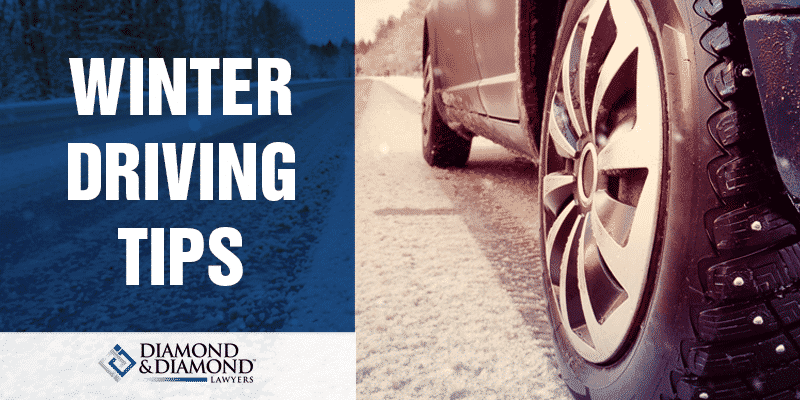From the beaches along its 27,000 metre long Pacific coastline to mountain peaks more than 4,500 metres high, the diverse beauty of British Columbia is unmatched.
This variety, however, also means that drivers traversing the province will likely encounter a variety of road and weather conditions throughout the year. Even in mild weather, narrow mountain pass routes such as the Trans-Canada Highway between Revelstoke and Golden demand a driver’s constant and full attention.
Safe automobile travel in winter conditions calls for even greater caution and preparedness. We have gathered from a number of authoritative government and private sources a few things you can do to help ensure a safe B.C. winter travel experience.
Install Winter Tires
Your vehicle’s ability to maintain traction in snow and ice conditions is a safe driving fundamental. Because snow and ice conditions can arise without warning virtually anywhere across B.C., an annual changeover from summer to winter tires that meet minimum legal requirements is a crucial element of driving preparedness.
Moreover, much of B.C.’s highway system is comprised of routes on which the use of winter tires is mandatory between October and March. Be sure to also maintain correct air pressure in accordance with the tire and vehicle manufacturers’ recommendations.
Stay Aware of Bad Weather
It’s harder to contend with heavy weather that comes on as a surprise. Before departing and again whenever you are stopped to rest or refuel, you can monitor current weather conditions on your route on the “Conditions and Events” page of the Provincial Government’s “Drive BC” website. If you have passengers, consider asking them to keep tabs on conditions using their smartphones.
Better Safe Than Sorry
If your judgment says conditions are (or are becoming) worse than you or your vehicle are prepared to handle, follow it. Be prepared to take an alternate route or even reschedule your trip. And remember that road closure signs are not mere suggestions – respect them and don’t venture into restricted areas.
Learn and Maintain Winter Driving Skills
First-time winter drivers are usually surprised by how differently their cars handle in snow and on ice. Drivers used to a rear wheel drive vehicle’s tendencies in warm weather can struggle with them in winter. Consider taking a winter driving training course (or, if you’re an “old pro”, a refresher course) and practice your winter braking, turning and skid recovery skills before venturing out into the “real world”.
Seeing and Being Seen
Halfway across the mountain is no time to discover your wiper blades are worn out. Keep them fresh, and consider switching to winter blades; they are generally heavier and better at pushing snow off your windscreen. Use freeze-rated washer fluid and be sure to check that your reservoir is full before leaving.
Remember, too, that if the weather has reduced your visibility the same is true for your fellow motorists’ ability to see you. Before departing, check to see that all lights on your car are functional. Check regularly for and clear accumulated ice and snow from headlamps and taillights.
British Columbia Auto Accident Lawyers
No matter how well prepared and cautious you are, you may still be injured by another driver’s carelessness. The team of lawyers at Diamond and Diamond have experience handling auto accident injury claims. Call our 24/7 injury hotline at 1-800-567-HURT or visit our website to speak to someone now. We offer free consultations and case evaluations. Our team of personal injury lawyers represents clients throughout British Columbia.
